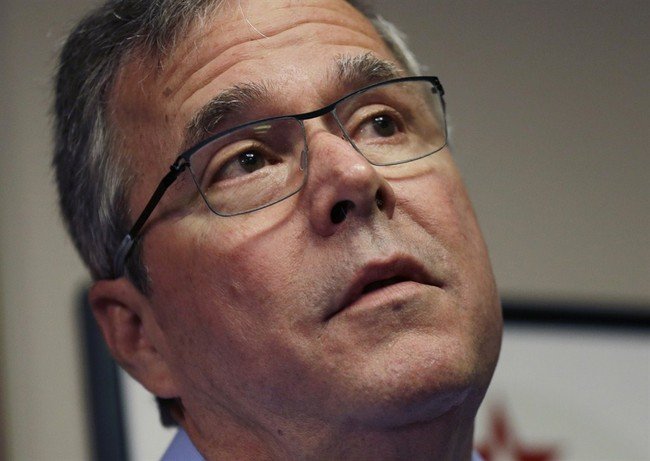It is widely believed that the 2016 Republican presidential race is so early that polls don’t matter. They are merely a measure of name recognition at this point, some observers say, and the only people really paying attention to the campaign are reporters and die-hard party activists.
That may have been the case in years past. But that doesn’t seem to be the case now. “One thing about this election is that Republicans are paying attention,” says a GOP pollster not affiliated with either campaign. “They’re very concerned about who gets nominated, and the idea that what a candidate says now doesn’t matter couldn’t be further from the truth.”
Look at the latest CNN/ORC poll. First of all, it’s a huge field, and no one candidate is dominating — Jeb Bush leads with just 17 percent. But nearly all those polled have chosen a candidate they support; adding up each candidate’s diminutive share of the vote, the total approaches 100 percent, with few undecideds.
There’s Bush with 17 percent, followed by Scott Walker with 12 percent; then Rand Paul and Marco Rubio with 11 percent each; Mike Huckabee with 9 percent; Ted Cruz with 7 percent; Ben Carson and Chris Christie with 4 percent each; Rick Perry and Rick Santorum with 3 percent each; and Carly Fiorina, Lindsey Graham, Bobby Jindal and John Kasich with 2 percent each. Then there are 5 percent who say they support another candidate.
Add that up, and that’s 94 percent of Republicans who say they support a particular candidate. The rest — a fairly diminutive number of undecideds — say they can’t make up their minds or have no opinion.
Of course, this is just for now. Many will change their minds, but they are already taking the race seriously.
At this point, many voters are probably making their initial decisions based on very little information. They know that Scott Walker fought unions in Wisconsin. They know that Jeb Bush is George W. Bush’s brother and George H. W. Bush’s son. They know that Ted Cruz was involved in the government shutdown.
“That’s why these announcements are important,” the pollster says, “because for the first time you can tie more facts to each candidate. And you saw that each candidate got a little boost when they announced their candidacy.”
Some analysts describe this period as the “pregame.” The real game begins at some point in the future, perhaps in August, when Ohio holds its first Republican debate. But the pregame, if it is a pregame, also matters. The candidates have one chance to make a first impression.
In the 2012 campaign, the first Republican debate was held on May 5, 2011, in Greenville, South Carolina. Participants included Ron Paul, Herman Cain, Rick Santorum, Tim Pawlenty, and Gary Johnson. (Don’t remember Johnson? He’s the former governor of New Mexico who ultimately ran as a Libertarian.)
The gigantic question of the night was whether Pawlenty could rise to the top of the ticket. (He couldn’t.) But the real lesson of the night, at least in retrospect, was that the GOP stakes were still astonishingly unformed at the time.
This year’s field seems much more stable than it has been in the past few years. Yes, Kasich could enter the race — he certainly sounded that way last weekend in New Hampshire — and yes, another candidate might try, too. But the basic structure of the Republican field seems all but set.
And powerful. In 2011 and 2012, you could often hear Republicans complaining about the weakness of their field. Some complain now — some always do — but the fact is that the 2016 GOP field is a pretty impressive group. Governors with solid records, senators who have made their mark in the Senate, plus intriguing figures from outside the political world.
Not all of them will even make it to the Iowa primary. And then they will drop like flies. The key thing for a successful candidate is to realize that they will have to be able to assemble a coalition of voters who support other candidates in the current 14-candidate field. That is what it will take to win.
One thing a candidate — or anyone else, for that matter — shouldn’t do is dismiss what’s happening in the race now as meaningless because it’s so early. A lot can change, but it’s possible that when February 2016 rolls around and voting begins, some of the issues (and frontrunners) in the race will look a lot like they do now.


